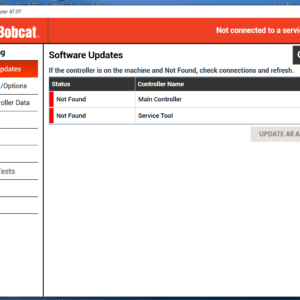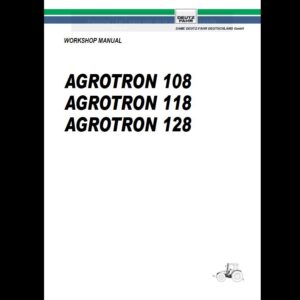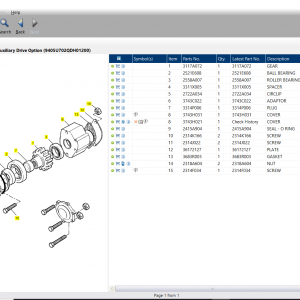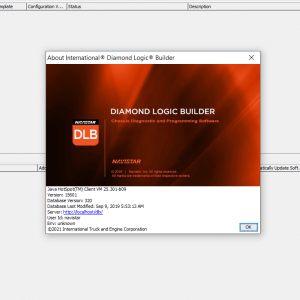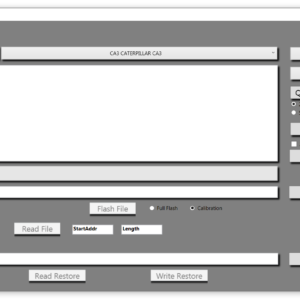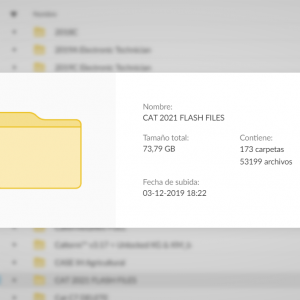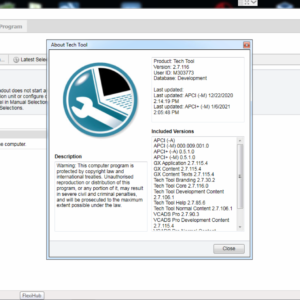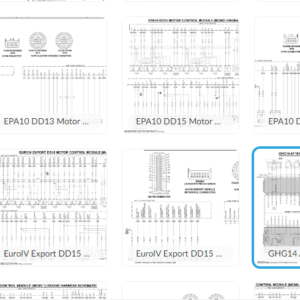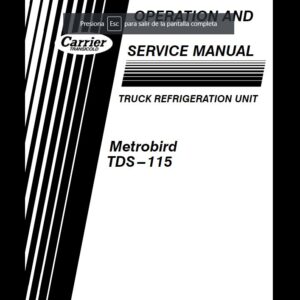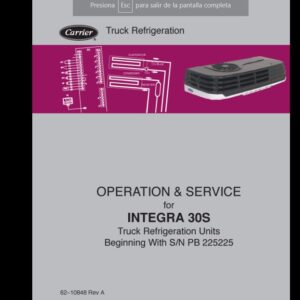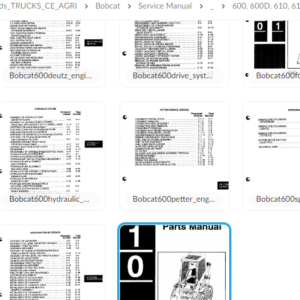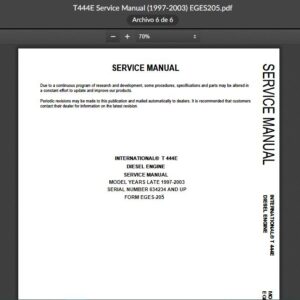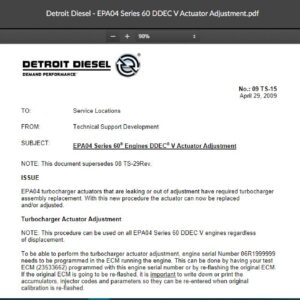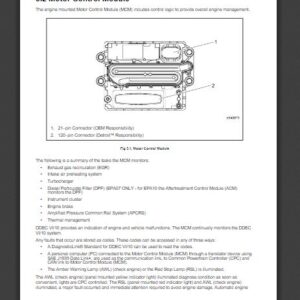PACCAR PX-9 CM2350 (2013-17) Fault Code:3313 PID: SPN:4765 FMI:4 Aftertreatment 1 Diesel Oxidation Catalyst Intake Temperature Sensor Circuit – Voltage Below Normal or Shorted to Low Source
Reason:
Aftertreatment Diesel Oxidation Catalyst Intake Temperature Sensor Circuit – Voltage Below Normal, or Shorted to Low Source. Low signal voltage detected at the catalyst intake sensor circuit.
Effect:
Possible reduced engine performance.
Circuit Description:
The aftertreatment diesel particulate filter temperature sensor module is a smart device that communicates with the engine control module via the J1939 data link. The aftertreatment diesel partculate filter temperature sensor module performs its own internal diagnostics and reports malfunctions back to the engine control module using the J1939 data link. The aftertreatment diesel particulate filter temperature sensor module is used to measure the aftertreatment diesel oxidation catalyst intake temperature, aftertreatment diesel particulate filter intake temperature, and aftertreatment diesel particulate filter outlet temperature. The temperature probes are permanently attached to the aftertreatment diesel particulate filter temperature sensor module and can not be replaced individually.
Component Location:
The aftertreatment diesel oxidation catalyst intake temperature sensor is located in the aftertreatment system. It is located at the intake of the aftertreatment catalyst. Refer to the OEM service manual.
Conditions for Running the Diagnostics:
This diagnostic runs continuously when the keyswitch is in the ON position and the engine is running.
Conditions for Setting the Fault Codes:
The aftertreatment diesel particulate filter temperature sensor module reported the aftertreatment diesel oxidation catalyst intake temperature signal was out of range low.
Action Taken When the Fault Code is Active:
1) The ECM illuminates the amber CHECK ENGINE lamp and/or the Malfunction Indicator Lamp (MIL) immediately when the diagnostic runs and fails.
2) A default value for the aftertreatment diesel oxidation catalyst intake temperature sensor reading is used.
3) Diesel exhaust fluid injection into the aftertreatment system is disabled.
4) Active and stationary regeneration of the diesel particulate filter will be disabled.
5) Exhaust Gas Recirculation (EGR) valve operation will be disabled.
6) Engine torque will be reduced if the engine is operated for an extended period of time with this fault active.
Conditions for Clearing the Fault Code:
1) To validate the repair, perform a key cycle, start the engine and let it idle for 1 minute.
2) The fault code status displayed by INSITE™ electronic service tool will change to INACTIVE immediately after the diagnostic runs and passes.
3) The ECM will turn off the amber CHECK ENGINE lamp immediately after the diagnostic runs and passes.
4) For On-Board Diagnostics (OBD) engines, the ECM will extinguish the Malfunction Indicator Lamp (MIL) after three consecutive trips where the diagnostic runs and passes.
5) The Reset All Faults command in INSITE™ electronic service tool can be used to clear active and inactive faults, as well as extinguish the MIL for OBD applications.
Shop Talk:
Reference the appropriate OEM wiring diagram when troubleshooting circuits that utilize wiring supplied by the OEM.
For intermittent power supply and datalink communication issues with Aftertreatment Components, it is highly recommended that the OEM Power Distribution Center fuses and relays be thoroughly checked for loose, missing or intermittent connections.
Possible Causes:
1) A malfunctioning aftertreatment diesel oxidation catalyst intake temperature sensor
-
volvo Devtool Studio V2 / V3 / V4 Developer tool plus 2.6 / 2.7
Trucks software $35.00Rated 0 out of 5 -
VOLVO PREMIUM TECH TOOL PTT 2.7.116 + APCI 2021 + devtool ( ONLINE )
Trucks software $80.00Rated 0 out of 5
Related products
-
Allison 1000 & 2000 Gen 4 Fault Codes: P0875 Transmission Reverse Pressure Switch Circuit Malfunction
1000 & 2000 Gen 4 $50.00Rated 0 out of 5 -
Allison 1000 & 2000 Gen 4 Fault Codes: P1892 Throttle Position Sensor Pulse Width Modulation (PWM) Signal High Input
1000 & 2000 Gen 4 $50.00Rated 0 out of 5 -
Allison 1000 & 2000 Gen 4 Fault Codes: P1891 Engine Throttle Position Sensor Pulse Width Modulation (PWM) Signal Low Input
1000 & 2000 Gen 4 $50.00Rated 0 out of 5 -
Allison 1000 & 2000 Gen 4 Fault Codes: P0846 Transmission Pressure Switch Solenoid D Circuit Stuck Open
1000 & 2000 Gen 4 $50.00Rated 0 out of 5 -
Allison 1000 & 2000 Gen 4 Fault Codes: U0073 CAN Bus Reset Counter Overrun
1000 & 2000 Gen 4 $50.00Rated 0 out of 5 -
Allison 1000 & 2000 Gen 4 Fault Codes: P0848 Transmission Pressure Switch Solenoid D Circuit High
1000 & 2000 Gen 4 $50.00Rated 0 out of 5 -
Allison 1000 & 2000 Gen 4 Fault Codes: U1096 J1850 (Class 2) IPC Controller State of Health Failure
1000 & 2000 Gen 4 $50.00Rated 0 out of 5 -
Allison 1000 & 2000 Gen 4 Fault Codes: U1064 J1850 (Class 2) TBC Controller State of Health Failure
1000 & 2000 Gen 4 $50.00Rated 0 out of 5 -
Allison 1000 & 2000 Gen 4 Fault Codes: P0218 Transmission Fluid Over Temperature Condition
1000 & 2000 Gen 4 $50.00Rated 0 out of 5 -
Allison 1000 & 2000 Gen 4 Fault Codes: U1301 J1850 (Class 2) Serial Data Communication Link Low
1000 & 2000 Gen 4 $50.00Rated 0 out of 5 -
Allison 1000 & 2000 Gen 4 Fault Codes: U1016 Class 2 J1850 (Class 2) Powertrain Controller State of Health Failure
1000 & 2000 Gen 4 $50.00Rated 0 out of 5 -
Allison 1000 & 2000 Gen 4 Fault Codes: U1000 Class 2 Loss of Serial Data Communication
1000 & 2000 Gen 4 $50.00Rated 0 out of 5 -
Allison 1000 & 2000 Gen 4 Fault Codes: U1041 J1850 (Class 2) ABS Controller State of Health Failure
1000 & 2000 Gen 4 $50.00Rated 0 out of 5 -
Allison 1000 & 2000 Gen 4 Fault Codes: U1300 J1850 (Class 2) Serial Data Communication Link Low
1000 & 2000 Gen 4 $50.00Rated 0 out of 5
-
SERVICE MANUAL DETROIT DIESEL EPA 07, EPA 10, GHG 14 TROUBLESHOOTING
DETROIT $38.00Rated 0 out of 5

